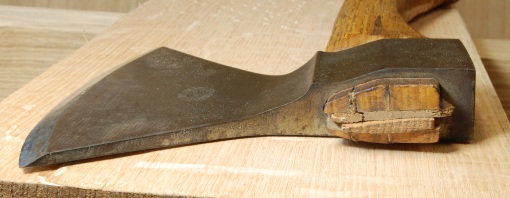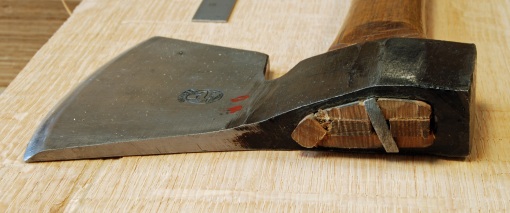I think the question in the title is phrased wrong. It should be "Who still does
not bring axes?"

I live and travel by fire. It rains a lot where I paddle, and the wood gets soaking wet. The twigs turn to liquid wood. I use my axe to split out dry wood to cook with for my cooking fires and for water boiling.
I find it funny that a person would tell me that my tools are useless in my situation. Perhaps someone's "spiritual act of paddling" is more superior than mine, more worthy, more something. I am not spiritual, I am just an animal. Meanwhile I'll be using my axe, cutting and splitting wood and living by fire. I will be making a trace on the landscape too, as my ancestors did chasing the toe of the glaciers as they retreated back, carving out portage tails, blazing trees with my axe to show newcomers the way, carving and hacking out campsites, clearing tent and tarp areas, and leaving fire rock sets for me or other people to burn wood on when they stay at the campsite I or my ancestors made.
The fire that I live by is the energy of the sun, released from chemical bonds between carbon, hydrogen, oxygen and nitrogen atoms in the now dead woody plant that, in its life, converted solar light energy into chemical energy, splitting C02 in the process, fixing the sun's energy bonding carbon atoms together into cellulose and other stuff, and making oxygen for me to breath. As I tend my fire made from splits of dry wood that my axe and saw helped me collect and prepare, I am releasing the latent energy from the sun (often from within a soggy mantle of rain soaked wood), and bonding that oxygen back into CO2 for another plant to feed on.
I heat my home with boreal white birch packaged sunlight as well, splitting wood every weekend in my backyard with my useless non-spiritual axe. Its not spiritual for me, its just cutting and burning wood, and I like it. I mean, I
really like it. I am going downstairs right now to add another piece of axe split birch into the woodstove.....


